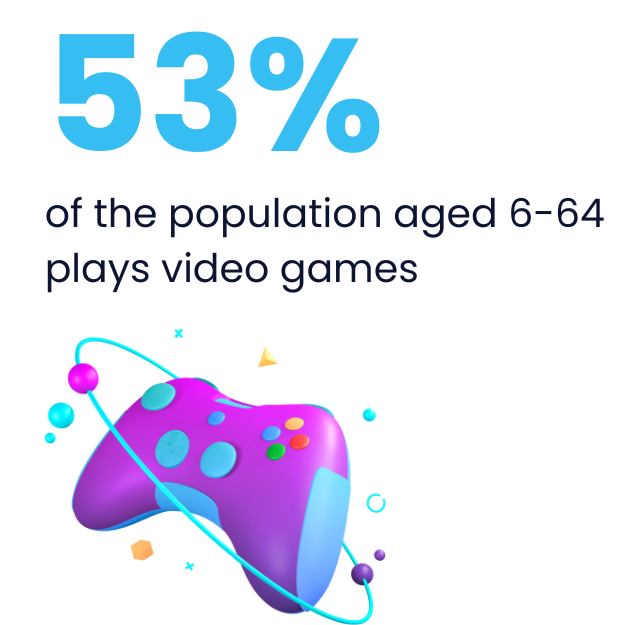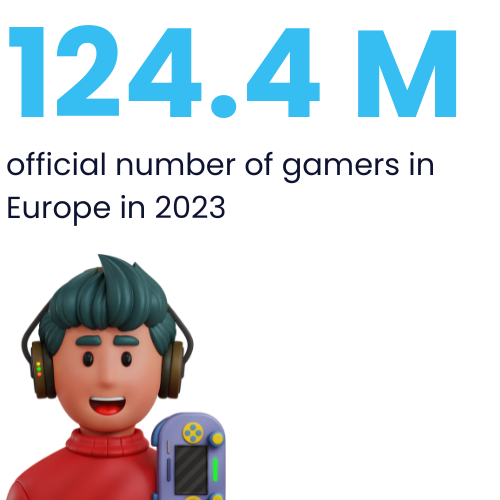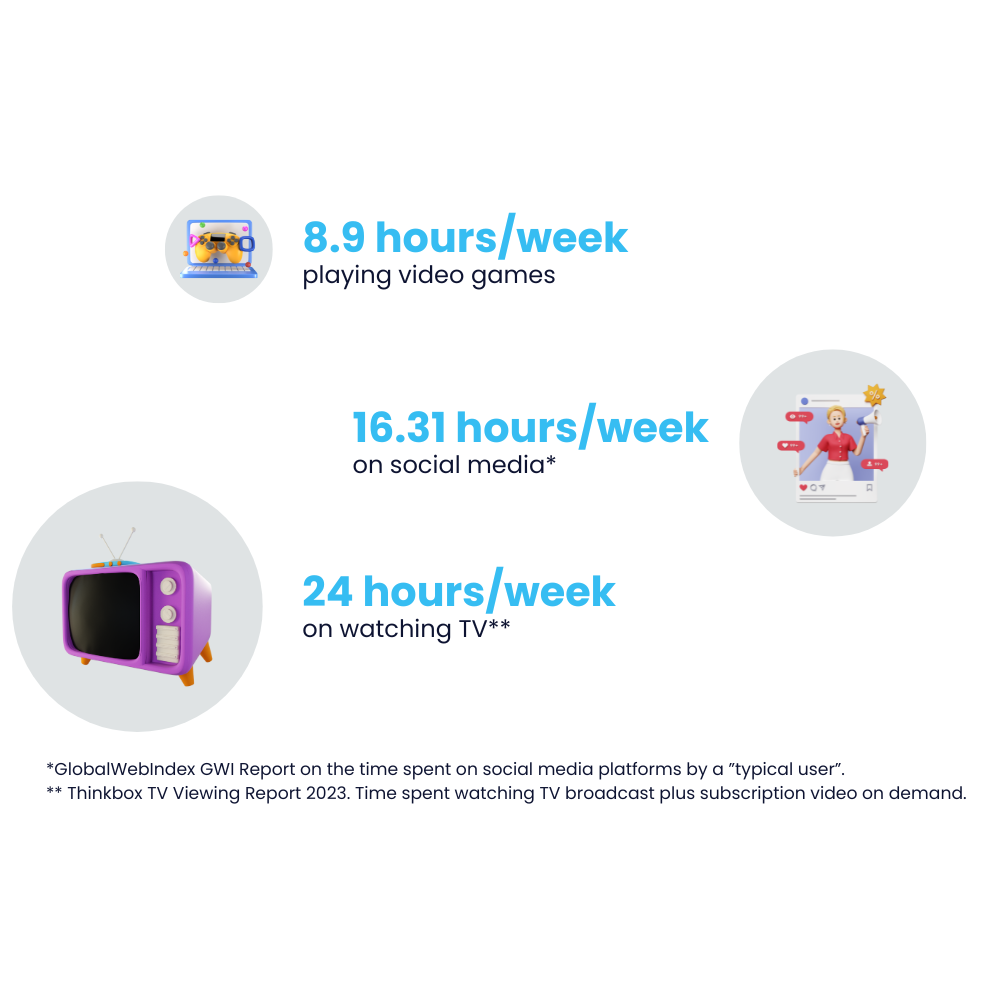
Europeans and Video Games
If we haven’t made it crystal clear by now, we love video games. To us, they’re the perfect fusion of cutting-edge technology and boundless creativity. Even though some of us know how to appreciate video games, others around us don’t always see the benefits of this fantastic hobby. As gamers, we’ve had many moments when others around us didn’t understand our passion, which brought in feelings of loneliness and rejection. But most of all, we couldn’t get why more people don’t play because, let’s be honest: who doesn’t love escaping into another universe after a long day with a chunky pair of headphones immersing them in every sound, every sensation?
Don’t rack your brain searching for an answer because the truth is, far more people share this passion than you might expect. More exactly, 53% of the European population aged 6-64 play some form of video games.
Yes, you read that right. Many of those people you pass on the street, sit next to in cafés, or stand beside at concerts, spend their evenings just like you: exploring a world full of pixels, storylines, and adrenaline. Feeling a little less alone now?
Well, buckle up, because we’re just getting started. Let’s dive into some more jaw-dropping statistics, all gathered from the European Games Developer Federation’s 2023 report.

First things first, 124.4 million. That’s the official number of gamers in Europe in 2023. But hey, video games are just for kids, right? Surely your grandpa doesn’t fill his free time playing video games. And what about your parents? They always seemed to think your gaming habits were a waste of time!
So, who exactly are these millions of players? Let’s broaden your perspective a little.

Among them, 41% are between 15 and 34 years old. So maybe your high school classmates were far more likely to be gaming after school than your uncles or aunts at family reunions. But here’s where it gets interesting: nearly 1 in 4 players (23%) were between 45 and 64 years old in 2023. That’s 28.9 million people. Not exactly a niche group. Before you get too excited though, most of them come from Germany, France, Italy, the UK, and Spain. So, if you love video games and you’re wondering why older gamers seem rare in your country… well, maybe it’s time for a move.
Another interesting fact that might surprise you is that the average age of these European gamers is 31 years old. Well then, in 2023, 75% of those 100+ million gamers were over 18 years old. So next time someone insists they’re “too old” for video games, you’ve got the perfect comeback.
Yet age isn’t the only differentiator between these gamers. In one of our articles, we explained that an important part of Audio QA is making sure that the game audio plays correctly across all devices without delays, distortions or compatibility problems. Well, there is a reason behind this: 68% of European gamers play on their smartphones or tablets, 56% play on consoles and 46% of them play on PCs. These numbers tell us two things:
- Many European gamers use more than one device (because let’s be honest: who doesn’t love a quick field plough in Farming Simulator during the day and an intense Witcher III session at night?)
- PC gamers are not as many as you’d think, so QA testing across several platforms is essential.
Well, there seems to be a lot of gamers out there; isn’t that alarming? Is half of Europe glued to their screens, gaming away every waking hour? Well…not exactly. The amount of time people spend playing video games has stayed consistent in the last 12 years. On average, the magic number is 8.9 hours per week. In comparison, Europeans spend 16.31 hours/week on social media, and 24 hours/week on watching TV. So, video gaming isn’t the biggest time eater after all.
Let’s draw a conclusion: more and more people from Europe play video games, but are they helping us with anything? In short, the report indicates that video games can help people cope with difficult emotions, provide them with healthy distractions from everyday challenges and even increase happiness.
When it comes to Europeans, 74% of them agree playing video games provides mental stimulation, 68% agree playing video games helps one feel less stressed and 75% of players agree there is a video game for everyone.

Their suppositions are correct. Several scientific studies show that video gaming can potentially benefit creativity, happiness, and social connections. For example, one study pointed out that games push players to establish feedback loops that provide immediate responses to players’ activities. This feedback loop tells players that success can only be achieved after multiple trials, bringing them a more optimistic approach to other life challenges. Video games are not only therapeutic but also have a social side: an Oxford study from 2020 highlights that players’ experiences of competence and social connection with others through play may contribute to people’s well-being.
So, what do all these numbers tell us? Simple: video games are versatile and creative and have multiple roles in our lives. Whether it’s a way to unwind after a stressful day, a mental workout to keep your brain sharp, or simply an escape into a world where anything is possible, gaming has something to offer everyone. And if 3 out of 4 Europeans already see the benefits, we’re looking at a hopeful and exciting future for gaming!
